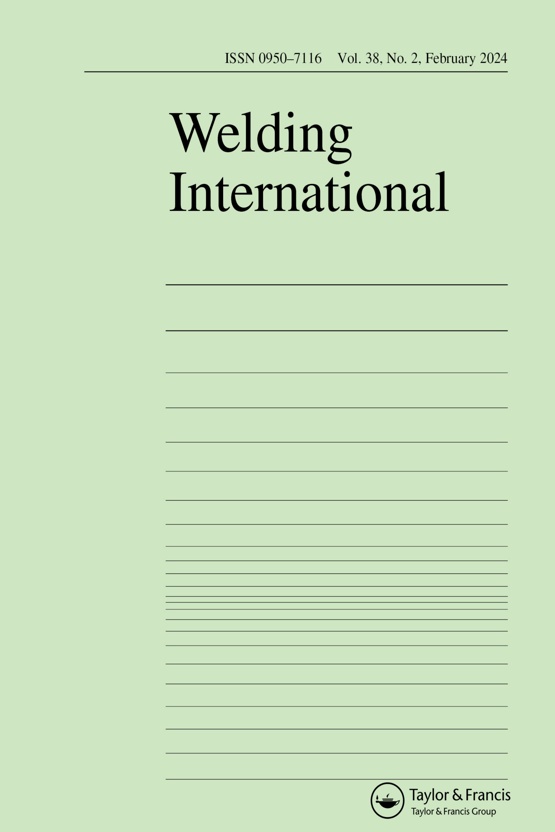Submit a Manuscript to the Journal
Welding International
For a Special Issue on
Emerging Trends in Hybrid Welding and Hybrid Additive Manufacturing
Manuscript deadline
25 March 2025

Special Issue Editor(s)
Dhanesh G. Mohan,
University of Sunderland, UK
[email protected]
Elango Natarajan,
UCSI University, Malaysia
[email protected]
Ali Khalfallah,
University of Sousse
[email protected]
Abdollah Saboori,
Politecnico di Torino
[email protected]
Emerging Trends in Hybrid Welding and Hybrid Additive Manufacturing
Objective
This special issue aims to provide a comprehensive overview of the latest advancements and emerging trends in hybrid welding and additive manufacturing techniques. By bringing together cutting-edge research and innovative methodologies, this special issue seeks to explore the synergistic benefits and potential applications of combining traditional welding processes with additive manufacturing technologies. Through insightful contributions from leading experts in the field, we aim to stimulate discussion, foster collaboration, and inspire further research in this rapidly evolving domain.
Overview
Hybrid welding and hybrid additive manufacturing represent two distinct yet complementary approaches that have garnered significant interest in recent years. This special issue aims to delve into the convergence of these techniques, exploring the novel opportunities and challenges they present in materials processing and fabrication. From enhanced process efficiency and improved part quality to expanded design capabilities and reduced production costs, the integration of welding and additive manufacturing holds immense potential for revolutionising traditional manufacturing practices. Through a curated collection of research articles, reviews, and case studies, this special issue sheds light on emerging trends, innovative methodologies, and promising applications in hybrid welding and hybrid additive manufacturing. By providing a platform for knowledge exchange and collaboration among researchers, practitioners, and industry stakeholders, we hope to advance the understanding and adoption of these transformative technologies in diverse industrial sectors.
Looking to Publish your Research?
Find out how to publish your research open access with Taylor & Francis Group.
Choose open accessSubmission Instructions
Scope and Areas Covered
1. Hybrid Welding Techniques: This special issue will explore advancements in hybrid welding processes, including combinations of arc welding, laser welding, electron beam welding, and friction stir welding with additive manufacturing technologies.
2. Hybrid Additive Manufacturing Methods: It will cover innovative approaches integrating additive manufacturing processes such as selective laser melting (SLM), directed energy deposition (DED), and material extrusion with traditional welding techniques.
3. Material Compatibility and Selection: Articles focusing on the selection and compatibility of materials for hybrid welding and additive manufacturing, considering factors such as metallurgical properties, thermal behaviour, and process interactions, will be included.
4. Process Optimization and Parameter Control: The special issue will feature research on optimising process parameters and control strategies to enhance the quality, efficiency, and reproducibility of hybrid welding and additive manufacturing processes.
5. Mechanical and Metallurgical Characterization: Contributions discussing the mechanical and metallurgical properties of hybrid welds and additively manufactured parts, including microstructural analysis, defect characterisation, and mechanical testing, will be welcome.
6. Modelling and Simulation: This special issue will include articles on computational modelling, simulation, and predictive analytics to optimise hybrid welding and additive manufacturing processes and predict material behaviour.
7. Challenges and Future Directions: Discussions on the challenges, limitations, and future directions of hybrid welding and additive manufacturing technologies, along with potential solutions and avenues for further research, will be encouraged.